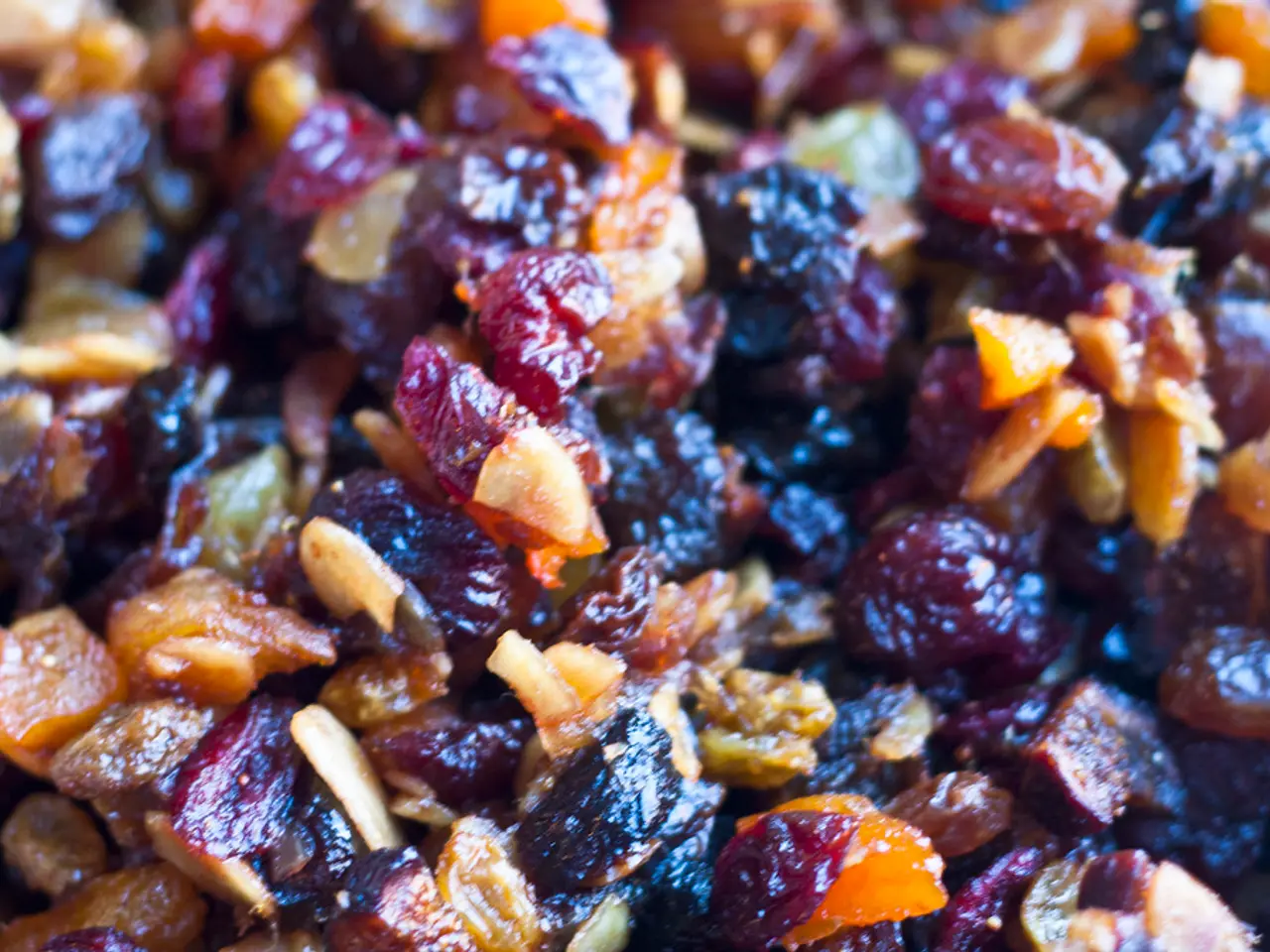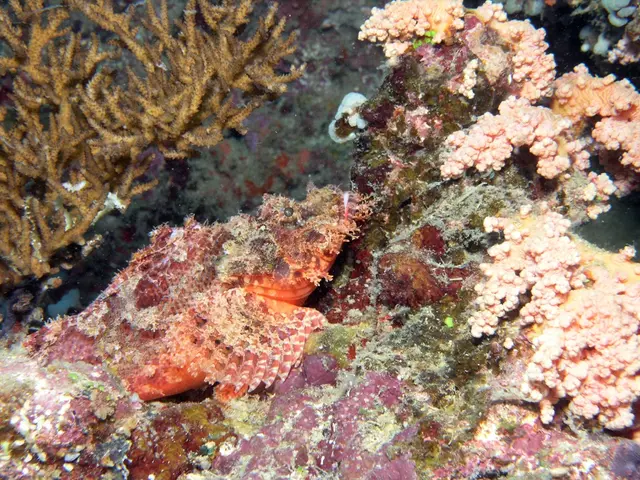Researchers in Lisbon create dog biscuits from rejuvenated bacterial matter, contemplating future steps towards human edibles.
In the ever-evolving landscape of protein production, microbial proteins have emerged as a promising alternative to traditional plant and animal-based proteins. Companies like MicroHarvest, a startup based in Portugal, are leading the charge, experimenting with various microbes and feedstocks to create a sustainable, efficient, and nutrient-rich protein source.
MicroHarvest's final product resembles light brown flour and carries a faint scent reminiscent of Marmite. It is packed with around 60% raw protein, fibre, amino acids, and other essential nutrients. The company is now seeking Series B funding to expand its operations, with plans to open a new plant in 2027 that could produce 15,000 tonnes of product per year - a significant leap from its current output.
However, the road to commercialization is not without challenges. Regulatory hurdles, high production costs, and consumer acceptance issues are key obstacles that the industry must overcome.
Regulation and Safety Approvals
Microbial proteins must undergo rigorous regulatory reviews before they can be approved for consumption. In the EU, these proteins fall under the Novel Food Regulation, requiring extensive safety, nutritional, toxicological, and allergenicity assessments. This process can take years, causing delays in market entry. Some companies are forced to seek more permissive regulatory environments, such as Singapore, which offers streamlined approval processes. In the United States, the Food and Drug Administration (FDA) uses a GRAS (Generally Recognized as Safe) framework, also requiring comprehensive safety data.
High Production Costs
The economics of microbial protein production are challenged by costly substrates and relatively long fermentation times. Efforts to convert cheap, abundant feedstocks like lignocellulosic biomass and food waste are ongoing to reduce costs, but large-scale cost-effective production remains complex.
Consumer Acceptance
Despite being sustainable, microbial proteins face skepticism regarding taste, texture, and overall appeal compared to traditional proteins. Consumer awareness, trust, and willingness to adopt these novel proteins heavily influence market acceptance.
Technical and Scale-Up Challenges
Advances in metabolic engineering to utilize diverse substrates and improve yields show promise but require further technology development to achieve consistent, scalable production processes economically.
Integration of Advanced Technologies
Artificial intelligence and data analytics are increasingly being used to optimize flavour, texture, and nutritional profile, aiming to address consumer demand and improve commercial viability. However, ensuring data privacy and transparency remains important for consumer trust.
MicroHarvest's Journey
MicroHarvest, led by co-founder Katelijne Bekers, has submitted a full dossier to the European Food Safety Authority (EFSA) seeking regulatory approval for human consumption of its fermented protein. The company is optimistic about the potential of microbial proteins, with plans to scale through the pet industry, having already launched a vegan dog treat made with microbial protein in collaboration with VegDog.
Europe, particularly Portugal, is seen as a favorable location for biotechnology companies due to its strong universities and biotechnology sector. The availability of conventional pet food and fish feed falls short of current demand, offering opportunities for companies like MicroHarvest.
The Location of the New Plant
The location of the new plant has not been disclosed, but co-founder Luísa Cruz emphasizes the benefits of doing business in Portugal, citing the country's strong biotechnology sector and talent pool.
The Future of Microbial Proteins
The next few years will determine if microbial proteins are a fleeting fad or the future of food. Europe, with its significant investment in the fermentation-based protein industry, is poised to play a key role in this evolution. The industry is experiencing significant investment, backed by both private and EU funding, as the world seeks sustainable, efficient, and nutrient-rich protein sources.
References
[1] European Commission. (2021). Novel Food Regulation. Retrieved from https://ec.europa.eu/food/safety/novel_food/authorisation_procedure_en
[2] Food and Agriculture Organization of the United Nations. (2020). Microbial Proteins for Food and Feed. Retrieved from https://www.fao.org/3/ca8788en/ca8788en.pdf
[3] Institute for Advanced Sustainability Studies. (2020). Microbial Proteins: A Sustainable Alternative to Animal and Plant-Based Proteins. Retrieved from https://www.iass-potsdam.de/en/research/research-projects/microbial-proteins
[4] Good Food Institute Europe. (2021). Microbial Proteins. Retrieved from https://goodfoodinstitute.org/europe/issues/microbial-proteins/
[5] McKinsey & Company. (2020). The Future of Food: Tackling the challenges of alternative proteins. Retrieved from https://www.mckinsey.com/business-functions/sustainability/our-insights/the-future-of-food-tackling-the-challenges-of-alternative-proteins
Read also:
- Wawa avian tests positive for West Nile disease
- Exploring the Advantages of Outdoor Group Meditation for Enhancing the Mind-Body Union
- Top 12 Journals Perfect for Recording Outdoor Findings that Fuel Awe and Curiosity
- Sustainable Seafood Consumption: An Examination of Environmental Impact: A Guide for Seafood Lovers








